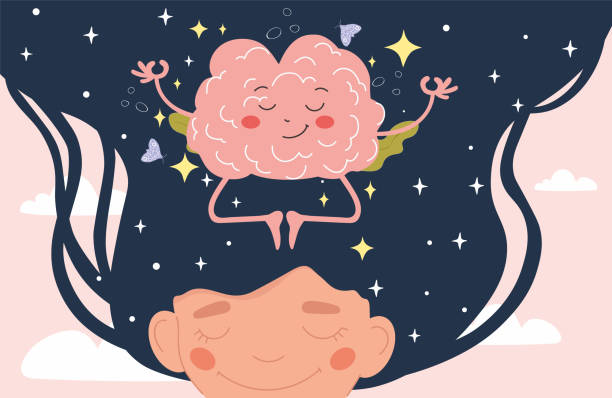
If it was once thought of just as a technique to relieve stress, meditation is now equated with the performance of the brain and its functions such as memory. This information provides practical strategies which illustrate the ability of meditation in the formation of memory and in improvement of both short-term memory and slow-term memory. Below, find information on the science and benefits of meditation as well as tips for the most effective techniques for improving memory More on this meditation memory.
The Science Behind Meditation and Memory

It is revealed that meditation works topographically on the brain impacting regions associated with attention, emotional modulation, and, most importantly, memory. Research has shown that practice of meditation not only thickens the working memory part of the brain the prefrontal cortex but also provides two folds development to the hippocampus which is responsible for memory consolidation.
1. Neuroplasticity: Building Stronger Memory Pathways
Yoga promotes brain plasticity, the process through which the brain forms new neural connections throughout a person’s lifetime. This proves helpful for the brain to get information in and out without much of a hassle particularly in regions that have to do with memory.
2. Increased Focus and Attention Span
As the technique of concentrating the Active Mind Force in meditation practice provides fresh ideas, which permits better information processing. Enhanced attention plays a vital role in memory since distraction adversely affects comprehensive information storage in the memory chamber.
3. Reduced Cortisol Levels for Improved Memory
Prayer and meditation lead to reduced level of stress, which has negative effect on cortisol, a stress hormone. Cortisol, a stress empowering hormone tends to hinder memory, but for this, unbroken meditation can avert and reinforce your capability to memorise and even recall what you have learned.
Best Meditation Techniques for Boosting Memory

Like in case of emotions, there are several types of meditations which has the potentiality to improve several types of memory ranging from short term memory to improve emotional memory. Here are some effective practices:
1. Mindfulness Meditation for Cognitive Clarity
The first and most obvious is that practicing mindfulness, that is being in the here and now, de-clutters your mind and thus you can concentrate and remember. Breath control, realize that one has drifted away, and bring the concentration back to the subject.
Technique: Start the warming up process by giving a time limit of 5-10 minutes. Breathe slowly, keep you breath out before you breath in. When a thought appears, write it down as you do not label it and bring your awareness back to your breath.
2. Focused Attention Meditation (FAM)

This technique means picking one thing, like the candle light or a word we want to repeat, and centering on that. FAM helps by building the attention span of that age and boosting your working memory because mentally it is programmed to hold detail on to the specifics.
Technique: Select an object and start the count down to 10-15 minutes. Sit comfortably and look gently at the topic or just keep thinking the chosen word in mind. Becoming aware of any irrational thought and redirect your concentration to the object or the mantra.
3. Visualization Meditation to Enhance Emotional Memory
Visualization works within the areas of the brain connected with forming and consolidating emotional memory—this savors greatly for sensing and, therefore, for memorizing important information. This technique proves useful when working on concepts and ideas that are best grasped together with some sort of imagery.
Technique: To memorize something, try to mentally ‘visualise’ whatever you want to remember, by picturing it in your mind’s eye, shut. This visualization involves the use of all the sensing areas of the body concentrating on ranging from the things you see, hear, feel, and smell.
4. Loving-Kindness Meditation (LKM)
LKM fosters congenial affects and improves emotional control that will help you recall the affective experiences with ease. Positive emotions are also know to enhance retrieval strength when creating events that are easily associated in memory.
Technique: Start with the loving-kindness meditation of 5-10 minutes saying to ones self phrases like “May I be happy, may I be healthy”. Generalize these wishes to others, adopting positive emotional thinking toward people you have an affection for.
5. Transcendental Meditation (TM) for Overall Cognitive Health

TM is a silent repetition of a personal mantra and relaxes the body and the mind. The observed effects of stress decrease and the general improvement of the brains coherent activity linked to the technique of TM.
Technique: TM is most often done with guidance of an expert but one can begin by simply allowing the body to remain still for a while and then make a sound or word that is soothing to you. Practice for this for 10-20 minutes every day.
Benefits of Meditation on Memory

1. Improved Short-Term Memory
Research has shown that improvement in working memory that results from consistent meditation enables people to store as well as manipulate more amounts of information. This can come in handy throughout a number of daily activities, for example, memorizing a shopping list, or directions.
2. Enhanced Long-Term Memory Retention
In addition meditation can build the strength of the hippocampus which can improve long-term memory storage. This is very useful for students, working people especially those who requires memory enhancement as they grow older.
3. Greater Recall Ability
Reduction of stress also results to better recall of memory since the practice of meditation enhances the brain density in regions that have do with loss of memory.
4. Delayed Cognitive Decline
Lack of practice of flexibility possibly results in early memory deterioration and meditation may slow down this process. Therefore, that which is learned through meditation and which pertains to neuroplasticity is essential in delaying cognitive deterioration.
Tips for Making Meditation a Habit

Here are 8 simple ways to make meditation a part of your routine without feeling like it’s a lot of work. Try these tips to build a consistent routine that enhances your memory:
- Start Small: To start over and reduce the stress on the partner, you should start with only five to ten minutes at a time an gradually increase the length of your session.
- Create a Meditation Space: Chose a comfortable, calm place in your house where you can practice meditation daily. Possessing some additional table accessories such as cushion, candles or beautiful paintings can help make this place welcoming.
- Use Meditation Apps: There is a plethora of guided meditation available both for those who want to start with meditating and for those who already have some practice; the most famous apps that one can use for focused meditations for memory are Headspace, Insight Timer, or Calm.
- Stay Consistent: Consistency is key. Choose a particular day’s part of the day, for instance in the morning, in the evening or whenever you are most relaxed.
- Be Patient: Improvement of memory, among the benefits of meditation is among the other benefits that are so time consuming. Keep on it, and know that even if it’s only five minutes a day you’ll see progressive improvement in your memory over time.
Potential Challenges and How to Overcome Them
While meditation is extremely helpful, there are some issues that arise when a person will try to integrate it into their daily routine or feel like they are stagnating. Here’s how to address common obstacles:
1. Difficulty Focusing
First timers suddenly noticed their thoughts going in different directions they could not control. Begin with the sessions that do not last longer than fifteen minutes, and always use guided meditations. To give you an idea of how it goes on, you’d be sure that it is easier to be present as you go up.
2. Impatience with Results
Meditation outcomes are incremental. Remember that the desire for cognitive improvement is the result of continued practice. A meditation diary can be used even if you see only minor changes in focus or ability to recall information.
3. Inconsistent Routine
It is equally significant and important to learn that developing a practice of meditation is not an easy task. As the crazy-busy sneaks up on you, decide when you will practice every day and do not be frustrated if you have to skip a day- just start the next day.
The Role of Diet and Lifestyle in Memory and Meditation
In other words, if meditation is done together with a supportive lifestyle, then memory retention is further improved. Eating foods containing omega-3 fatty acids or antioxidant foods and avoiding diets high in sugar boost one’s memory and concentration. Also, the prevention of defective memory and its constructive recall involves average exercise, a healthy diet and proper sleep.
Conclusion: Final Thoughts on Meditation and Memory
Yoga is a known technique which has been scientifically proven to help enhance the memory of an individual. Meditation, that improves attention, decreases anxiety, and increases the key areas related to memory, is effective both for immediate recall and long-term storage. Meditation can be a universal tool to improve cognitive functioning, or just a student who needs to memorize some tough material, or even a person who just wants to train his brain.



